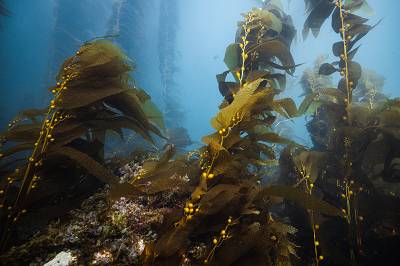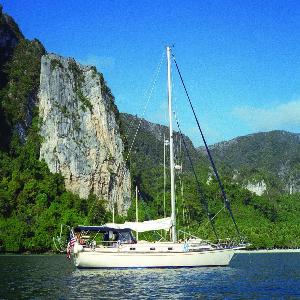Could seaweed help us survive a nuclear winter? A new study says yes.
In an era fraught with geopolitical tensions and environmental uncertainty, the prospect of nuclear conflict looms as a persistent threat. As preppers and survivalists seek refuge from potential cataclysms, one often-overlooked resource emerges as a beacon of hope: seaweed. Recent research published in Earth's Future highlights the remarkable resilience and nutritional richness of seaweed, positioning it as a crucial component of survival strategies in the face of nuclear winter.
The Study: Seaweed's Resilience and Food Potential
The study, conducted by researchers and published earlier this month, underscores seaweed's capacity to withstand the harsh conditions of nuclear winter. Drawing upon simulations and models, scientists found that seaweed not only survives but thrives in environments characterized by reduced sunlight and altered climate patterns. This resilience, coupled with its rapid growth and nutritional value, marks seaweed as a promising food source in post-apocalyptic scenarios.
Surviving Nuclear Winter with Seaweed
Imagine a world plunged into darkness, with temperatures plummeting and traditional food sources dwindling. In such dire circumstances, survivors of nuclear conflict may find solace in the abundance of seaweed lining coastal waters. Unlike conventional crops that falter in the absence of sunlight, seaweed's ability to photosynthesize efficiently under varying light conditions ensures a stable food supply even in the bleakest of environments.
Harvesting Seaweed: A Practical Solution for Preppers
For those contemplating survival strategies, the simplicity of harvesting seaweed presents an attractive proposition. Live-aboard sailboats, often touted as bug-out vessels for navigating post-apocalyptic landscapes, offer an ideal platform for seaweed cultivation. With minimal equipment and expertise required, preppers can cultivate and harvest seaweed directly from the ocean, supplementing their provisions with this nutrient-rich superfood.
The Global Impact of Seaweed Farming
Beyond individual survival scenarios, seaweed farming holds immense potential for addressing broader issues of global food security. The study suggests that within a relatively short timeframe of nine to 14 months, seaweed cultivation could make a significant contribution to meeting the world's nutritional needs. This aligns with the Food and Agriculture Organization of the United Nations' recognition of seaweed as a valuable addition to the global food supply chain.

Seaweed: Nutrient-Rich and Sustainable
What makes seaweed such a formidable contender in the realm of survival foods? The answer lies in its nutritional richness and sustainable cultivation practices. Seaweed boasts an impressive array of vitamins and minerals, including iron, calcium, iodine, potassium, and selenium, making it a powerhouse of essential nutrients. Furthermore, seaweed cultivation requires minimal inputs and does not contribute to land degradation or deforestation, aligning with principles of sustainability and environmental stewardship.
Seaweed's Versatility Across Industries
While seaweed's potential as a food source garners significant attention, its versatility extends far beyond the realm of nutrition. Across industries ranging from pharmaceuticals to cosmetics, seaweed finds myriad applications, further bolstering its appeal as a multipurpose resource. Whether utilized in skincare products, pharmaceutical formulations, or animal feed supplements, seaweed offers a sustainable and eco-friendly alternative to conventional ingredients.
Understanding Seaweed Growth Dynamics
To fully harness seaweed's potential in survival scenarios, it's essential to grasp the intricacies of its growth dynamics, particularly in the context of nuclear winter. Contrary to expectations, seaweed exhibits accelerated growth rates under conditions of heightened environmental stress, peaking within the initial years of cultivation. This phenomenon, attributed to enhanced nutrient availability resulting from disruptions in oceanic circulation patterns, underscores seaweed's adaptability to fluctuating conditions.
Investing in Seaweed Farming Infrastructure
As the specter of nuclear conflict looms ever larger, proactive measures must be taken to prepare for the worst-case scenario. Investing in seaweed farming infrastructure represents a proactive step towards enhancing global resilience and mitigating the potential impacts of nuclear winter-induced food shortages. By cultivating seaweed on a large scale, communities can bolster their food security and reduce reliance on conventional agricultural practices vulnerable to environmental disruption.
Conclusion: Embracing Seaweed as a Survival Solution
In the face of unprecedented challenges posed by nuclear conflict and environmental instability, seaweed emerges as a beacon of hope for survivalists and preppers alike. Its resilience, nutritional richness, and versatility position it as a formidable ally in the quest for sustainable living amidst adversity. By harnessing the potential of seaweed farming, humanity can fortify its resilience and ensure a brighter, more sustainable future in the wake of nuclear winter.




